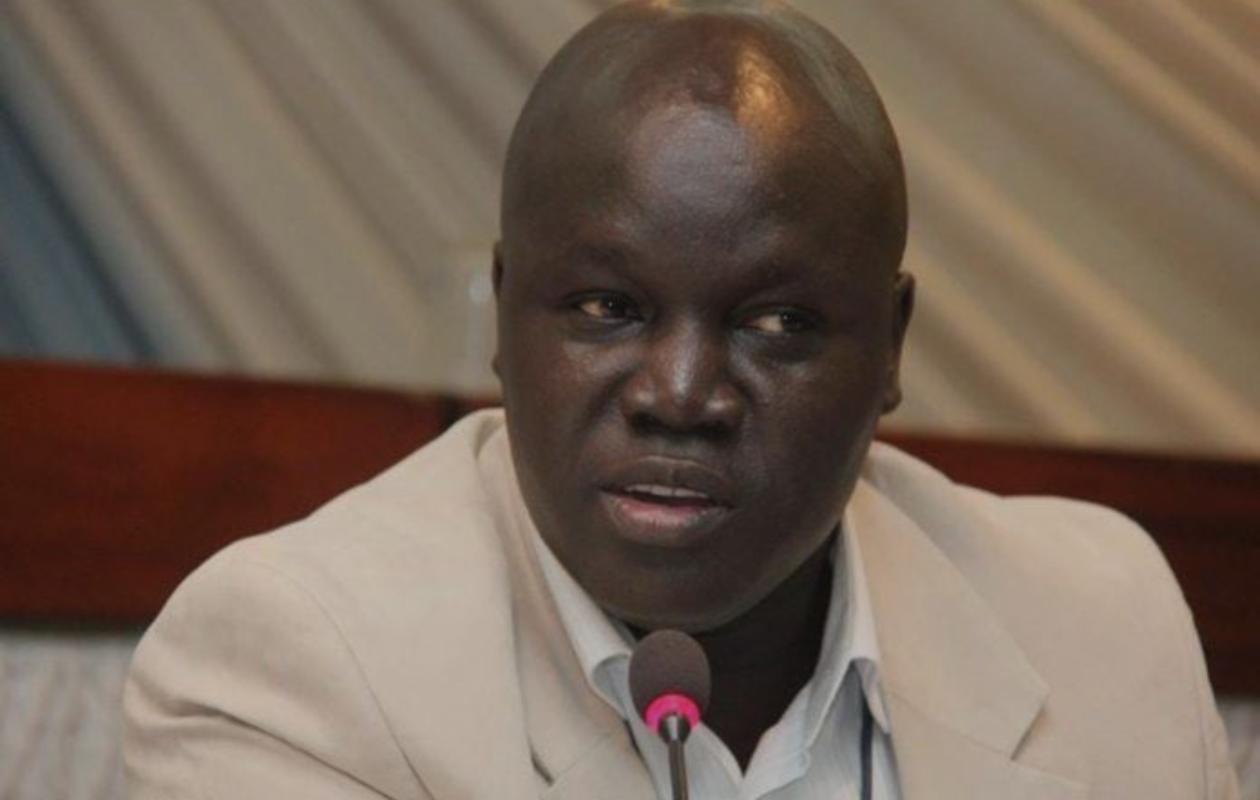
[Mediatek] Mamadou Ndiaye : Pilote du journalisme 2.0 au Cesti
From philosophy to ICT, from France to Senegal, from football to teaching... Mamadou Ndiaye, Director of Cesti, played many keyboards before heading the largest journalism school in French-speaking Africa. Today, Do Ndiaye, a native of Rufisque and a fervent supporter of Olympique de Marseille, has set himself the challenge of enabling journalists to explore the opportunities of digital technology.
In the sandy streets of Diamaguene, in Rufisque, they called him Do Ndiaye. A lively kid, clinging to his soccer ball, always ready to run to the beach or dash off to Bambilor to pick mangoes with his friends. The son of a worker at the Valda factory, Mamadou Ndiaye was not a child predestined to lead the Center for the Study of Information Sciences and Techniques (CESTI), the most prestigious journalism school in French-speaking Africa. But already, one could sense in him the rigor and stubbornness that would mark his career.
After a flawless education in Rufisque, he entered Cheikh Anta Diop University in Dakar and earned a master's degree in philosophy. In 2000, with a scholarship in hand, he flew to France with the ambition of preparing a thesis. But fate loves detours: a setback with his research director pushes him to abandon philosophy to reinvent himself in information and communication sciences. A successful gamble: in 2006, in Bordeaux, he defended his thesis and became a doctor.
Comfortably settled in France, with a job found and an apartment purchased, he could have made his life there and filled what popular jargon calls the "brain drain." But the dark-skinned man with a somewhat pot-bellied face chose his homeland. In 2007, a call changed everything: Cesti offered him a teaching-research position. Mamadou Ndiaye accepted without hesitation. "I told myself it was an opportunity to give back what I had received," he confides, proudly.
“Discipline, innovation and participation”
An ICT specialist with a passion for digital technology and new journalistic writing, Ndiaye, according to some CESTI students, quickly established himself as one of the pillars of the institution created in 1965. In the corridors of this part of Dakar's Cheikh Anta Diop University, Do Ndiaye dresses simply. Sometimes in Lacoste, sometimes in a short shirt with jeans. A simplicity that the "Cestian community" adores. Director of Studies, then director of CESTI in 2020, he arrived at the head of a school undermined by tensions. His watchwords: appease, reform, innovate.
Under his leadership, CESTI has seen the emergence of new modules: data journalism, fact-checking, and mobile journalism. Taking things further, it has expanded its scope with degrees in communications and audiovisual production. "CESTI must remain a leading school, but it must also adapt to changes in the profession," he theorizes.
Regarding his management style, he advocates a participatory approach. "I don't believe in decisions being imposed from above. Here, everyone must feel involved, because the school belongs to everyone."
The man is both demanding and approachable. Always ready to chat with students, he retains that "big brother" side for many students. And when he's not immersed in his educational projects, he can be found watching a match of Olympique de Marseille, his favorite club, which he supports with the same fervor as before on the inter-district football pitches.
Discipline, innovation, and participation: these three words sum up his vision. "Journalism is changing, digital technology is disrupting everything. But a school like CESTI must remain a compass: it trains not only competent professionals, but also responsible citizens," concludes Mamadou Ndiaye, the Rufisque native who became the ship's captain.
His vision of journalism today
He remains critical of current journalism practices. "Journalism is going through a turbulent period," he says. "We sometimes confuse speed with rigor, noise with information." For him, the urgent need is to return to basics. "Journalists must not chase buzz. They must research, verify, and contextualize. This is what distinguishes reliable information from mere rumor."
Faced with the explosion of social media and content generated by everyone, he insists: "The journalist must be the guardian of meaning and ethics. If we lose that, we lose the public's trust."
It is this conviction that he strives to transmit to the new generations of Cesti: a journalism that is both anchored in the most modern technologies and faithful to its primary mission, that of informing with truth and responsibility.
Commentaires (9)
SVP.
Participer à la Discussion
Règles de la communauté :
💡 Astuce : Utilisez des emojis depuis votre téléphone ou le module emoji ci-dessous. Cliquez sur GIF pour ajouter un GIF animé. Collez un lien X/Twitter ou TikTok pour l'afficher automatiquement.